
How Covid-19 Has Changed Sarasota
It’s been 18 months since the pandemic began, and we’ve all had to reckon with change. We’ve compiled a list of the big and small ways our world has been remade. And take heart, everyone—it’s not all bad.
A Slew of Newcomers
We’re accustomed to newcomers in Sarasota and Manatee. But the pandemic ushered in a flash flood of people who fled bigger, more expensive and high-tax cities and states (think New York, Chicago, L.A. and the San Francisco Bay Area) stuck in lockdown. The Sarasota metro area ranked No. 9 in the U.S. for fastest-growing metros, based on U.S. Census data, and No. 2 in the nation for net change in in-bound movers from 2019 to 2020.
Some of these newbies decided to accelerate their retirement plans (life is short, after all), while the fortunate class of remote workers decided it would be better to set up a home office near an uncrowded beach—or, more likely, in a master-planned community like Lakewood Ranch or Wellen Park. This is translating into record low inventory in the housing market and record high prices, and longtime real estate agents in the luxury market say they’ve never experienced anything like the affluence of all-cash buyers coming into town. Sarasota had a median price of $400,000 for single-family homes in June. In Manatee County, it was $405,000.
Will this last? We’ve gone through booms and busts before. But for now, our region is transforming. We’ve reached a higher plateau in our population size and in consumer demand from the wealthy—and that changes everything.
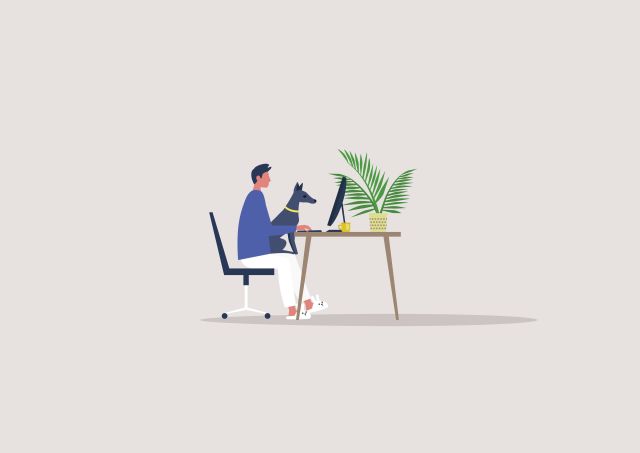
Remote Work
Even if you love your coworkers, it’s hard to come back from almost a year and a half of working in sweatpants. Recent polls suggest that workers with desk jobs want the flexibility of a hybrid workplace—part time at home and part time in the office—and many companies see the benefit of boosting employee morale while also cutting costs.
Nationally, during the first quarter of 2021, companies were looking for 10 percent less space than in 2020, and office vacancies are up.
That’s true in downtown Sarasota. Commercial real estate broker John Harshman of Harshman & Company says the office market downtown was struggling before Covid, with banks shrinking, professionals like stockbrokers working from home and customers shopping online. The pandemic accelerated the trend. This past summer, Sarasota downtown office vacancy had risen to 18 percent. Office space eventually may be reabsorbed as our population grows and new businesses enter the market or grow, but Harshman agrees there’s “been a fundamental shift in how we’re doing business,” and our downtown may have even fewer offices and even more restaurants and bars.
The good news for office workers? Keep those sweatpants handy.
We All Contracted Zillow-itis
We got a little obsessed with checking our homes’ value on Zillow as sales—and prices—soared, due to rafts of people escaping big cities during and after quarantine. The big question, as always, remains: Where can you afford to buy after you sell?
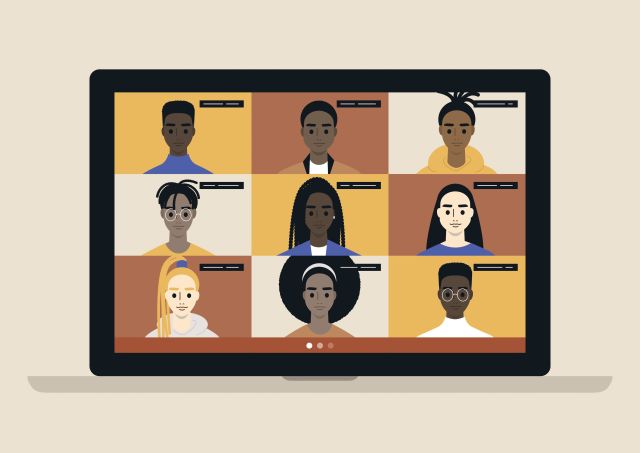
We Zoomed
OMG, did we Zoom. We all got way more adept at technology, even the Luddites among us. Sometimes it was awkward, but it kept us connected, and virtual meetings, whether business or personal, will never go away now.
Streaming Nation
With movie theaters closed, we streamed, and streamed and streamed some more. Who even knew how many services, shows and options were out there before? Hello, Sling, Fubo, Pluto, Tubi...We may never get off the couch.
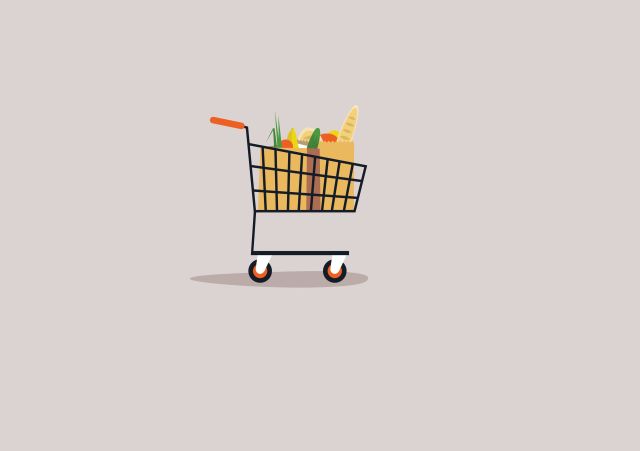
Online Shopping Takes Over
If you never heard of Instacart before 2020, there’s no way you don’t know about it now.
The app rocketed to prominence during the Covid-19 pandemic because it offered a safe, convenient way to keep your fridge stocked while shifting the risk of going into grocery stores onto gig-work “shoppers” who pick out your items and bring them to your doorstep. In addition to takeout and delivery from restaurants, fast food drive-throughs and online giants like Amazon, the service made staying at home possible for people whose jobs were not considered “essential.”
Instacart has seen explosive growth. In 2020, the company began offering deliveries from 15,000 new stores, bringing its total number of stores to more than 45,000. It now reaches more than 85 percent of U.S. households and is valued at $39 billion.
So, are we ever going back to the grocery store? Investors are betting that we won’t. In March, a handful of firms pumped $265 million into Instacart, which is planning to expand advertising options for product manufacturers trying to reach users, and to grow a program that helps retailers build online shopping websites in partnership with the company.
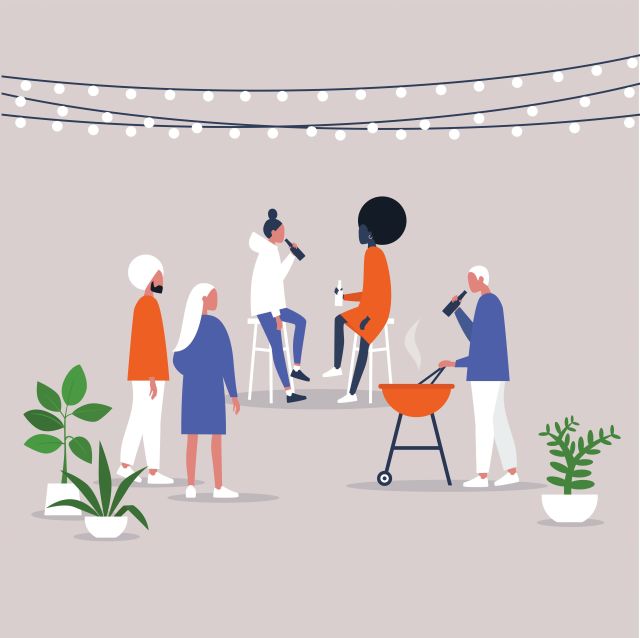
We Invested in Home
With no gyms, restaurants, shops and, in many cases, even workplaces to go to, we carved out new spaces and new ways to socialize at home. Spare bedrooms became home offices. Empty spaces became home gyms or meditation and yoga corners. Back yards became a refuge. A renewed interest in gardening put us in touch with nature and offered mental health benefits. Outdoor kitchens and patios for social gatherings blurred the lines between inside and out, and gave us more opportunities to see the humans we missed.
Covidlingo
Covid added extra pages to the dictionary almost overnight. Examples are quarantini (any drink during quarantine), doomscrolling (self-explanatory), maskne (acne from wearing a face mask), anti-buddies (friends with Covid who can quarantine together) and super-spreader. Now we know just what it means when someone asks, “Can we social distance there?” and “Did you get the Pfizer or the Moderna?” We know that a “coronavirus” causes colds, and “Covid-19” is the coronavirus disease discovered in 2019. More recently, we know that “delta” refers to a fast-spreading variant as well as a geographical term. Tech speech also came with its own remote work vocab: “I’ll Slack you a Zoom later.”
The Elbow Touch
Remember that awkward hello dance of “Do we kiss on the cheek or hug, and, if it’s the cheek, is it both?” In the spirit of social distancing, the kiss and hug evaporated overnight and even took the previously innocuous handshake with it. We’re not sure if the alternative elbow touch heralded by the pandemic will ever take hold long term, but personal greetings will probably stay a little cooler. And in some instances, are we ever relieved! Here’s looking at you, creepy Uncle Harry.
A Million Good Reasons to Eat Cake?
Not only was there a sudden dearth of toilet paper, the flour aisle at the grocery store was bare. Sales for some big-name flour brands shot up more than 100 percent—and our waistbands told the story. If staying indoors baking and eating more in search of comfort or to stifle boredom didn’t lead to a larger pant size, you didn’t do this siege right.
Women Left the Workforce
When schools shut down, women left the workforce to be full-time moms. And, even if they didn’t have kids, as hospitality and retail workers, they were among the first to be laid off.
The economy is rebounding, but women have not returned to the workforce. Why? Because women’s wages are lower, and child care is expensive. In fact, almost 2 million fewer women are in the labor force now than before the pandemic began, and economists estimate it will take more than two years to get back to a pre-pandemic labor force participation rate of 57 percent. The struggle is even harder for women of color. Economists agree: Keeping women at home is not good news for women or a full recovery.
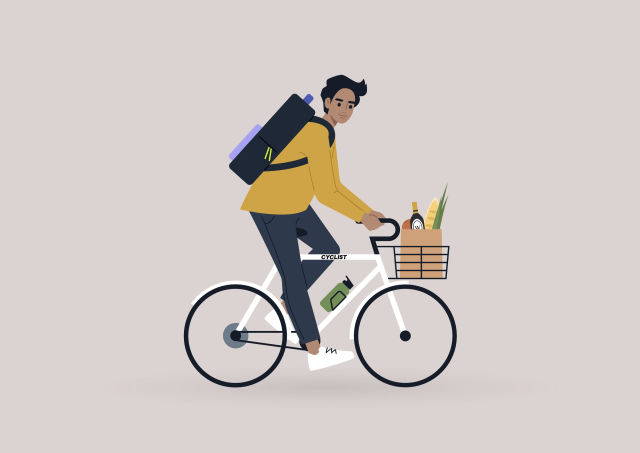
We’ve Rediscovered the Great Outdoors
Sarasota’s bicycle sales skyrocketed last year as we took to the outdoors. Hiking new trails and biking paths at Oscar Scherer and Myakka River State Park became our entertainment. The beach became a necessity rather than a luxury. We fell in love with nature again, appreciating the birds, bees and blooming plants in our little corner of the world.
Masking Up
We got used to packing a face mask on our persons, always. Whether it’s tucked in a purse or the glove compartment or even just dangling like a bracelet from an arm, it’s ready to be placed over our breathing apparatus at a second’s notice.
The Arts Adapted
Theaters and museums quickly learned more about ticketless tech, digitized (not printed) programs, and the latest in air conditioning and filter systems that will ultimately protect us not just from Covid but from other airborne viruses.
We Love Teachers Even More
As a parent of a young child, keeping up with Common Core math was already a challenge, and getting a squirmy 8-year-old to do it remotely was really the worst. Add doing it on top of working from home for a real hot mess. And there was no option to take that stress to the park or the arcade or relieve it with a playdate. We said goodbye to sleepovers that we depended on for a parent break, and goodbye to organized activities that kept our kids active and strong. All of a sudden, our children’s social, academic and physical development was suspended.
The value of teachers who are keeping our kids sharp and cared for five days a week is immeasurable. They spend just as much time with our children as we do, and deserve the health protection and appreciation many teachers were fighting for nationwide during the pandemic. Teachers not only deserve a raise, they deserve a crown.

Our Pets Saved Us
Quarantine life was made a little easier with our pets by our side. Not only were our cats and dogs enamored by our constant presence in their daily routines, but they became our emotional support and shelter from isolation. Nate’s Honor Rescue and the Humane Society saw a boom in adoptions, as owners fell in love with their pandemic pets.
No More Walls Between the Personal and Professional
As our homes have become our offices, any demarcation between one’s personal and professional lives has melted away. Having your child bounce a beach ball off your face in the middle of a Zoom meeting with your boss—yes, we had this happen here at the magazine—is a tangible reminder that while you may fancy yourself a professional, to your little boy, you’re just the guy who makes breakfast in the morning and tucks him in at night.
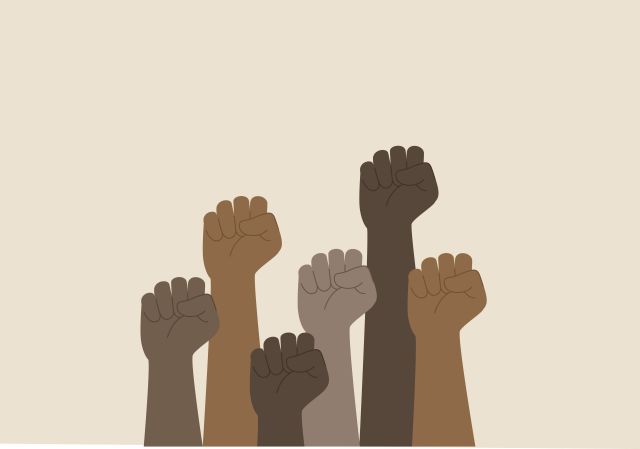
Racial Reckoning
No matter where you are politically, conversations of racism are on the front burner. Communities of color—which make up a big percentage of essential workers—were disproportionately affected by Covid with higher levels of infection and death. Then George Floyd was murdered, and people from coast to coast poured into the streets. We’re all paying attention now.
We’re Drinking More
Alcohol sales spiked during the early months of the pandemic, leading researchers to theorize that the combination of stress, isolation and boredom was causing Americans to drink more, and to drink more regularly. Between April and June 2020, for example, alcohol sales shot up by 34 percent when compared to the same time period in 2019.
David Forestier, a certified addiction counselor and a co-owner of Sarasota Addiction Specialists, has seen an uptick in the number of families reaching out with concerns about loved ones with addictions. Forestier says that during the height of the pandemic, people could no longer hide how much they were drinking from their families, because bars and restaurants were shut down. “There was a bigger awareness among families about what was going on,” says Forestier. But, he cautions, it is difficult to pinpoint one cause for addictions like alcoholism. The pandemic may have simply made existing addictive behaviors worse.
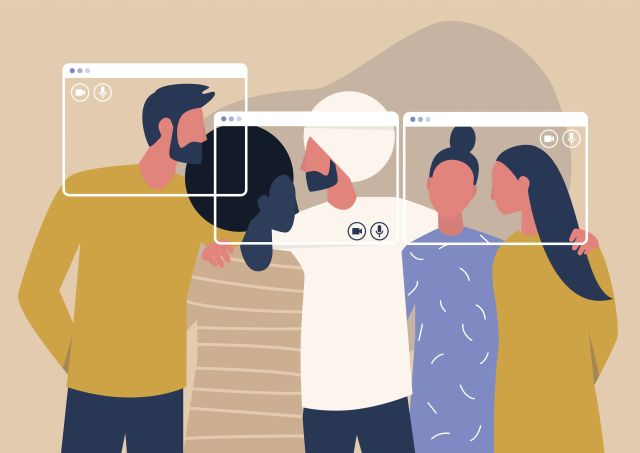
We Connected
Cooped up at home, we reached out to old friends and family in the ways we could. We learned to Zoom, or picked up the phone and emailed loved ones to keep loneliness at bay, check in and stay connected. We shared our pandemic stories with each other and just caught up on life, offering support and encouragement. Isolation gave us the time and space to nurture our relationships and appreciate the comfort they can bring.
The Need for High-Speed Internet
We’ll never take a good internet connection for granted again. Work, school, talking to our doctors, ordering groceries online or desperately applying for unemployment all required broadband speed. For poorer communities and in rural areas, the lack of internet access and high costs have left them farther behind. This digital divide cruelly penalized kids who couldn’t connect to their classrooms. President Joe Biden’s infrastructure plan is asking for $65 billion to increase broadband access across the U.S., but whether he gets this or not, no one considers a high-speed broadband connection a luxury anymore.
Tangible Love
Instead of cheering on healthcare workers over Facebook, we left encouraging signs on the sides of roads, saying, “Heroes work here.” We rediscovered a love for handwritten letters. We saw painted rocks left as hidden gems for morning walkers through the Sarasota Rocks Project and have shared a love for reading and art with South Gate and Arlington Park neighborhoods’ little free art galleries and libraries.

Dr. Zoom Will See You Now
Telehealth has grown popular and is likely here to stay. It transports us to a time of old-fashioned doctor house calls, but over video chat. We’ve even received diagnoses, medications and counseling sessions virtually. Self-care has become critical, and hopefully, we’ve learned to not sweat the small stuff while the world heals.
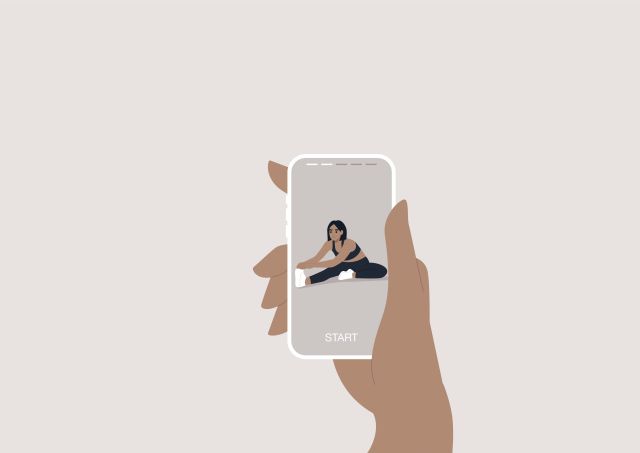
We Turned to Online Fitness
Instead of heading to the gym each day, we attended workout classes in our living rooms. Many local gyms and studios started Facebook live classes when physical locations shut down. Now, we prefer yoga at home with Pineapple Yoga Studio or virtual Zumba and HIIT workouts from Crunch Fitness and local gym instructors.
Fashion Shift
The “athleisure” trend is bigger than ever. Yoga pants, leggings and sweatshirts are far comfier than even casual jeans and tees. We’ve also traded out our office attire of heels and makeup for sneakers and the beauty filters on Zoom and Instagram.
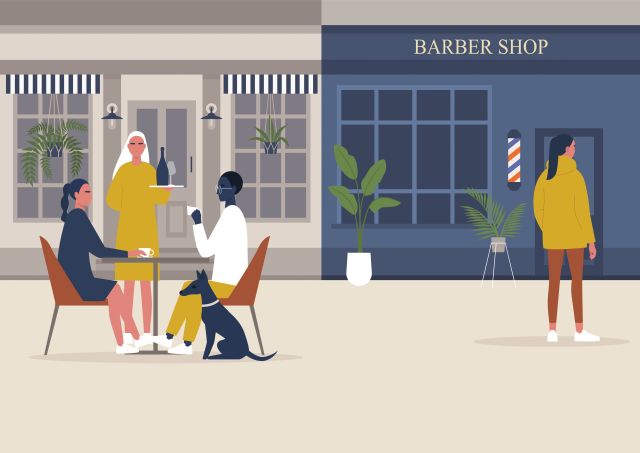
We’re Eating Outdoors More Than Ever
There are no restrictions on indoor dining anymore, but customers are still opting to sit outside. According to Mike Martin, who opened Reef Cakes in Sarasota in March, nearly all reservation requests are for outdoor tables.
To give restaurants like Reef Cakes a boost, the City of Sarasota has extended a special program that allows eateries to take over parking spaces with tables through the end of the year. And at least one city commissioner, Liz Alpert, has indicated support for making the policy permanent. (Sarasota County, meanwhile, has ended its own temporary rules making it easier for restaurants to offer outdoor dining.)
We love the vibrant street scenes that have taken over swaths of the city’s concrete. Would we like to sit inside or outside? More and more, we’re opting for fresh air.
And...the New Must-Have Car Accessory
There will always be a bottle of hand sanitizer in the car now. Always.